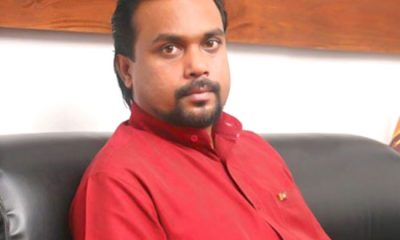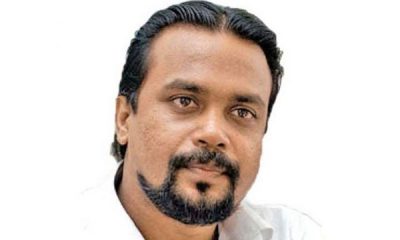News
Full implementation of 13A: NFF vows to torpedo Ranil’s move, asks Dinesh, Mahinda to disclose their stance

By Shamindra Ferdinando
The National Freedom Front (NFF), a constituent member of Nidahas Janatha Sandhanaya (NJS), has declared that it would oppose President Ranil Wickremesinghe’s bid to fully implement the 13th Amendment to the Constitution. The patriotic people were ready to defeat such plans, even at the expense of their lives, the party has vowed.
The breakaway JVP faction consists of six MPs, including former minister Wimal Weerawansa. The NJS is contesting the Local Government polls, scheduled for March 09, under the ‘Helicopter’ symbol.
NFF spokesperson, MP Jayantha Samaraweera, on Monday (30), told the media that his party was ready to lead a campaign against the UNP leader’s move to do away with constitutional safeguards meant to ensure Sri Lanka’s unitary status. The Lawmaker addressed the media at the NFF main office, at Pitakotte.
Having declared his intention to fully implement the controversial constitutional amendment at the Thai Pongal celebrations, in Jaffna, on January 15, President Wickremesinghe reiterated his commitment to the Eelam project during the party leaders’ meeting at the Presidential Secretariat, the former State Minister said.
Lawmaker Samaraweera asked Prime Minister Dinesh Gunawardena, and twice President Mahinda Rajapaksa, who had flanked President Wickremesinghe, at the party leaders’ meeting, to disclose their stand on 13th Amendment.
The Nidahas Janatha Sandhanaya, consisting of NFF, Democratic Left Front, Communist Party, Lanka Samasamaja Pakshaya, Pivuthuru Hela Urumaya, Vijayadharani Jathika Sabhawa, Yuthukama, Sri Lanka Freedom Party, Nidahasa Janatha Sabhawa, Jana Jaya Peramuna, Sri Lanka Mahajana Pakshaya and Nidahas Janatha Peramuna, has yet to disclose its position on this issue.
MP Samaraweera attacked the President, close on the heels of NFF leader Wimal Weerawansa, who is also the Chairman of the Uththara Lanka Sabhagaya (ULS), questioning the legitimacy of the move. Lawmaker Weerawansa addressed this issue at a meeting held at the BMICH, on January 26, to discuss ways and means to thwart the move to privatize the CEB.
The ULS consisting of seven political parties, and groups, is aligned with the NJS.
Referring to the circumstances UNP leader Wickremesinghe re-entered Parliament, through the National List, nearly a year after the last General Election, former Minister Weerawansa emphasized the President didn’t have a mandate to fully implement the 13th Amendment. How could the UNP leader abolish Sri Lanka’s unitary status, having received an opportunity to complete Gotabaya Rajapaksa’s remainder of five-year term, won at the Nov. 2019 Presidential Election.
The MP challenged their erstwhile comrades, in the JVP, to state their position on the 13th Amendment. Alleging that the JVP had been conveniently silent on the issue at hand, MP Samaraweera asked whether the current leadership would take up Wickremesinghe’s challenge.
In addition to Weerawansa and Samaraweera, Yuthukama leader Gevindu Cumaratunga, MP, has declared opposition to the President’s move, at the party leaders’ meeting.
Of the SLPP parliamentary group, retired Rear Admiral Sarath Weerasekera is the only MP to publicly oppose Wickremesinghe’s proposal.
Political sources said that the NJS, as a group contesting the forthcoming LG polls, was yet to deliberate this issue and take a stand. They said that consensus was required without further delay as the President’s proposal would be a major issue at the forthcoming election.
News
“Investments in Professional Education Are Investments in Institutional Strength and National Progress” – PM
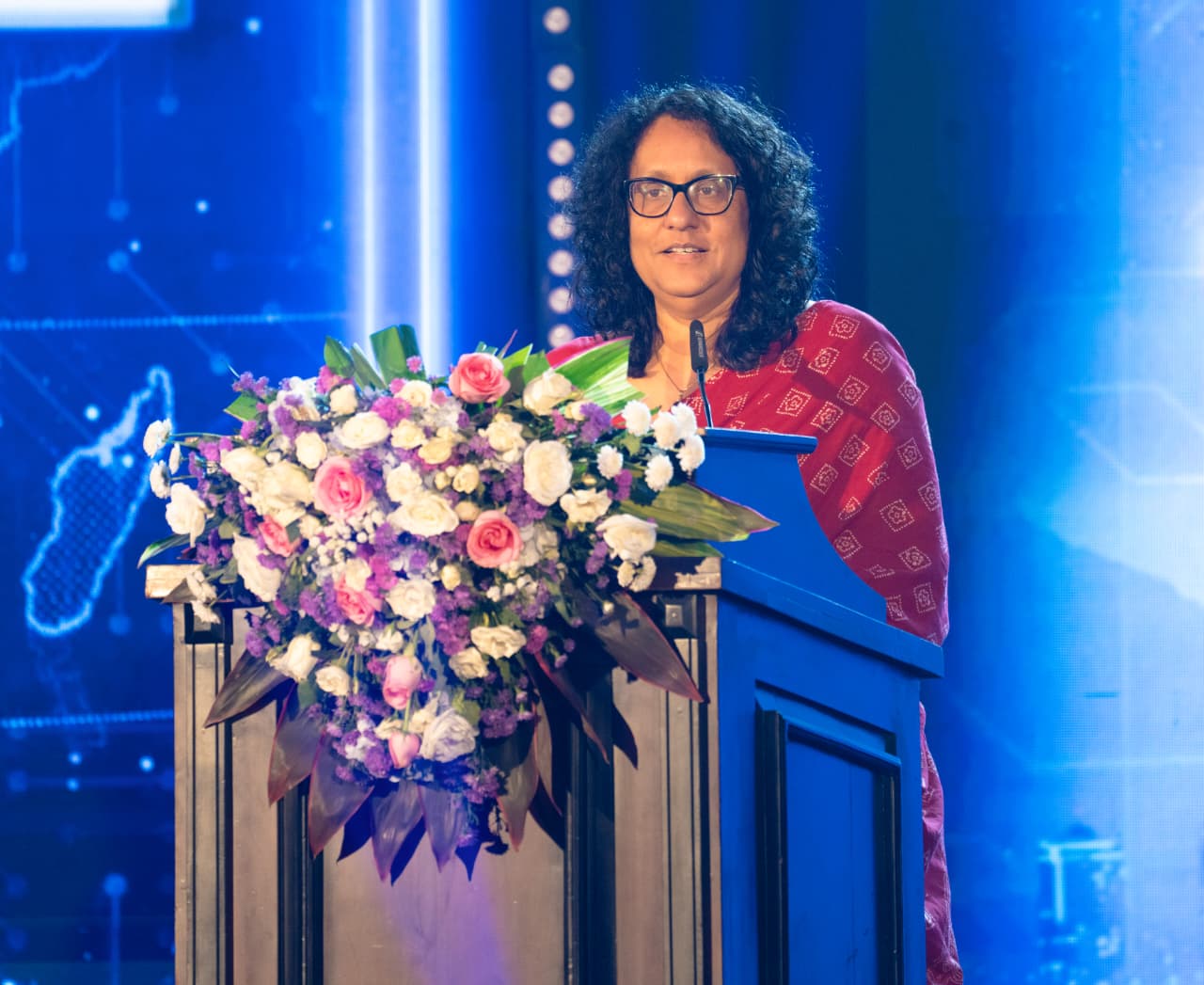
Prime Minister Dr. Harini Amarasuriya stated that strengthening Sri Lanka’s professional education framework and aligning it with internationally recognised standards is essential to building a skilled, ethical, and globally competitive workforce.
The Prime Minister made these remarks while addressing the official launch of the QS-accredited Chartered Qualification in Human Resource Management (CQHRM) at SCQF Level 11 (New Syllabus), organised by the Chartered Institute of Personnel Management (CIPM) Sri Lanka under the theme New Heights of Recognition. The event was held on Wednesday, 18 February at the Cinnamon Life, Colombo.
Emphasising the importance of expanding professional and vocational education pathways, the Prime Minister stated:
“This is of crucial importance to us in broadening our educational pathways and opportunities. We need to increase access to education that is globally recognised and that offers multiple pathways in professional and vocational fields. This aligns closely with the reform process we have initiated in the education sector and with our commitment to lifelong learning where individuals can work and learn at the same time, and where education is not limited to a particular age group but continues throughout life.”
Highlighting Sri Lanka’s national priorities, the Prime Minister further observed:
“At a time when Sri Lanka is focused on economic recovery, institutional reform and sustainable growth, the need for competent and ethical human resource leadership is clear. A competitive economy depends not only on investment and infrastructure but also on skilled professionals who can lead institutions effectively.”
The Prime Minister noted that the QS accreditation of the CQHRM qualification strengthens international recognition of Sri Lankan human resource professionals, enhances professional progression pathways, and reinforces confidence in the country’s professional education system. She also underscored the role of human resource leadership in advancing equity and inclusion within workplaces, including fair recruitment practices, safe working environments, leadership development for women, and inclusive policies for persons with disabilities and neurodivergent individuals.
Addressing the future of work, the Prime Minister stressed the importance of preparing for rapid technological transformation, including the growing impact of artificial intelligence on industries and workforce management, encouraging institutions to proactively adapt to emerging demands.
The event was attended by Deputy Minister of Industry and Entrepreneurship Development, Chathuranga Abeysinghe, along with other distinguished guests.
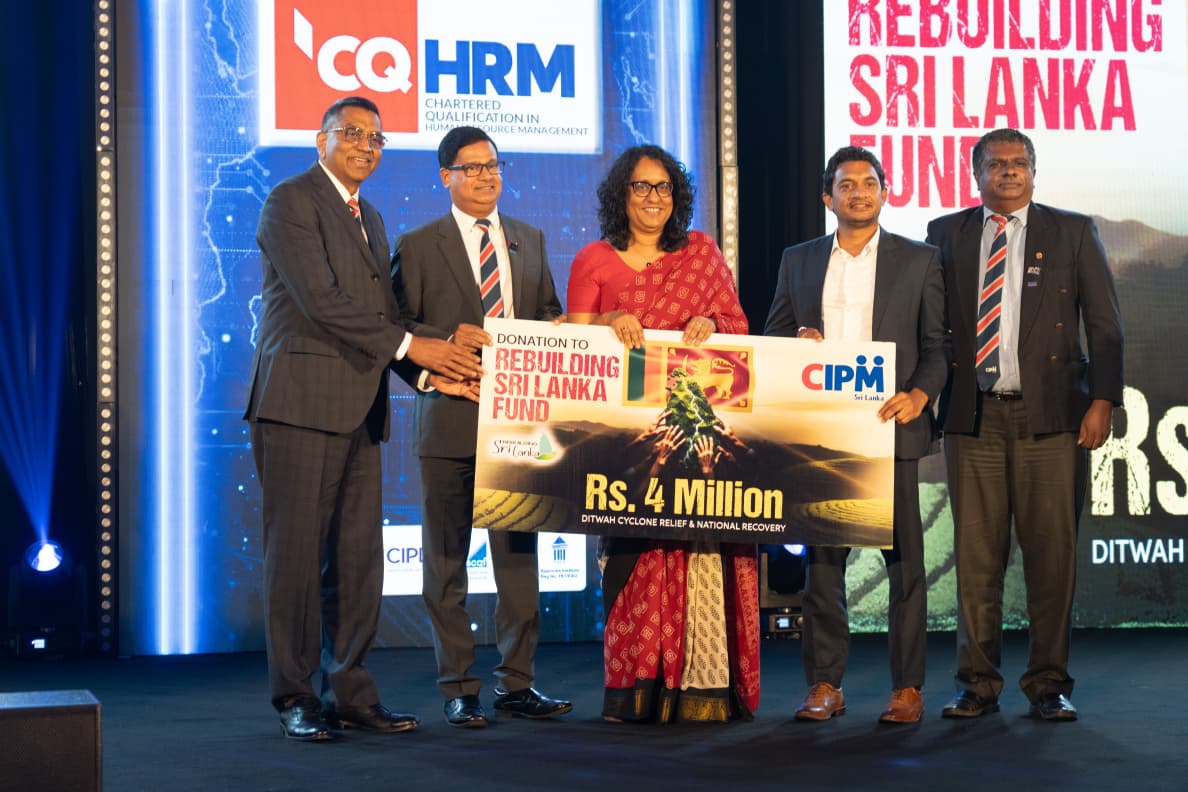
[Prime Minister’s Media Division]
Latest News
Advisory for Severe Lightning issued to the Western and Sabaragamuwa provinces and Nuwara-Eliya, Galle and Matara districts
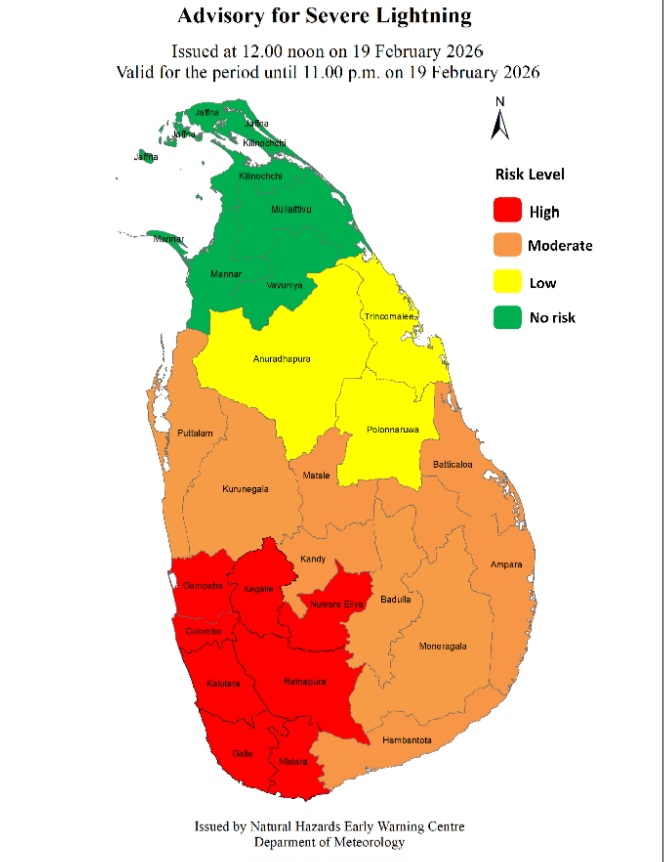
Advisory for Severe Lightning
Issued by the Natural Hazards Early Warning Centre at 12.00 noon 19 February 2026 valid for the period until 11.00 p.m. 19 February 2026
The public are warned that thundershowers accompanied with severe lightning are likely to occur at some places in in the Western and Sabaragamuwa provinces and in Nuwara-Eliya, Galle and Matara districts after 2.00 p.m.
There may be temporary localized strong winds during thundershowers.
General public is kindly requested to take adequate precautions to minimize damages caused by lightning activity.
ACTION REQUIRED:
The Department of Meteorology advises that people should:
Seek shelter, preferably indoors and never under trees.
Avoid open areas such as paddy fields, tea plantations and open water bodies during thunderstorms.
Avoid using wired telephones and connected electric appliances during thunderstorms.
Avoid using open vehicles, such as bicycles, tractors and boats etc.
Beware of fallen trees and power lines.
For emergency assistance contact the local disaster management authorities.
News
Navy and Coast Guard seize 04 Indian fishing vessels poaching in Sri Lankan waters

During operations conducted in the dark hours of 18 Feb 26, the Sri Lanka Navy and Coast Guard seized 04 Indian fishing boats and apprehended 22 Indian fishermen, while they were poaching in Sri Lankan waters north of Mannar and off the Delft Island, Jaffna.
Recognizing the detrimental effects of poaching on marine resources and the livelihoods of local fishing communities, the Sri Lanka Navy and Coast Guard continue to conduct regular operations as proactive measures to deter such activities. These efforts underscore the collective robust approach and steadfast commitment to safeguarding the nation’s marine ecosystems while ensuring the economic security and wellbeing of its citizens.
The 02 fishing boats along with the 10 fishermen held in Mannar were handed over to the Fisheries Inspector of Mannar and the remaining 02 fishing boats intercepted off the Delft Island, together with 12 Indian fishermen were handed over to the Fisheries Inspector of Myliddy for onward legal proceedings.
-

 Life style5 days ago
Life style5 days agoMarriot new GM Suranga
-

 Business4 days ago
Business4 days agoMinistry of Brands to launch Sri Lanka’s first off-price retail destination
-

 Features5 days ago
Features5 days agoMonks’ march, in America and Sri Lanka
-

 Features5 days ago
Features5 days agoThe Rise of Takaichi
-

 Features5 days ago
Features5 days agoWetlands of Sri Lanka:
-

 News5 days ago
News5 days agoThailand to recruit 10,000 Lankans under new labour pact
-

 News5 days ago
News5 days agoMassive Sangha confab to address alleged injustices against monks
-
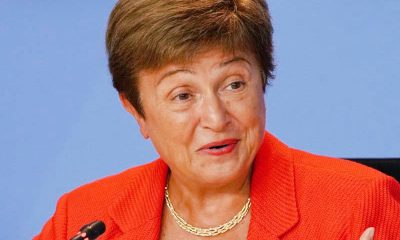
 News3 days ago
News3 days agoIMF MD here


